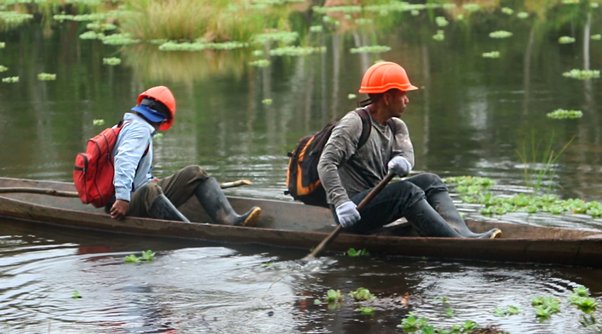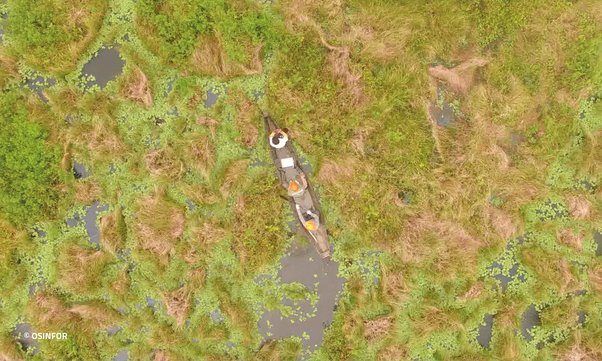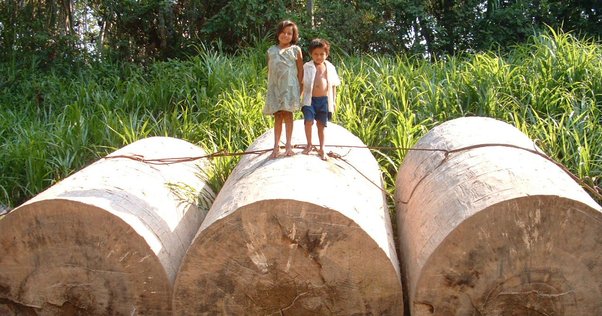All this while there are alarming moves to weaken the agency meant to protect it from forest crime.
- Anti-corruption NGO Global Witness is urgently calling on Peruvian government, donors and importers to step up efforts to protect the climate-critical forest from rampant crime.
- Findings emerge as the Peruvian government makes alarming moves to weaken the independence of forest watchdog OSINFOR, the only state agency effectively tackling illegal logging in Peru.
- The report also reveals how different logging permits have been used to make illegal timber – estimated to be worth up to $112 million – appear legal to sell on or export.
Global Witness has today revealed the worrying persistence of destructive and illegal logging in Peru. In light of the findings, the anti-corruption NGO is calling urgently on the Peruvian government, donors like Norway and Germany, and importers like the US and China to critically step up their efforts to protect the Amazon from forest crime.
New figures released by Global Witness show that over the last decade more than 60% of the OSINFOR inspected timber coming out of the country's top two producing regions[1] came from areas where widespread illegalities were committed.
The news comes as the independence of the Peruvian forest oversight agency, Organismo de Supervisión de los Recursos Forestales y de Fauna Silvestre (OSINFOR), has been significantly weakened.
Global Witness have said that the independence of the body – a pioneer in documenting illegal logging – is crucial in allowing it to act effectively, and help stem the flow of illegal timber coming from Peru.
Drawing on previously unpublished official data, the NGO’s new report ‘The Forest Avengers’ shows how persistently high rates of illegal timber, and timber “at high risk” of being illegal, has been coming out of Peru’s top three producing regions for ten years. OSINFOR’s work has revealed the true scale of this criminal activity.
But despite 10 years of this crucial work, OSINFOR was last month placed under the direct control of the Ministry of Environment – where potential conflicts of interests and political meddling threaten its independence and effectiveness. This move led the forest watchdog’s own Director, Maximo Salazar Rojas, to resign from his post in protest in December 2018. This month, U.S. Trade Representative Robert Lighthizer has also raised concerns, stating he considered the move “unacceptable” and a possible violation of the United States-Peru Trade Promotion Agreement.
Global Witness’ analysis also reveals how some of Peru’s biggest sawmills are consistently processing high rates of illegal timber, with few questions asked about its origin; and that illegal loggers are finding increasingly creative and devious ways to destroy the Amazon for profit while also evading OSINFOR accountability, including:
- Using new types of harvest areas – especially those intended to be in the hands of local communities – to launder timber on a vast scale. These kind of harvest areas are unable to be fined by OSINFOR.
- Faking the locations of trees in official documents, while illegally cutting trees elsewhere.
- Colluding with regional governments to get those falsified documents approved, making illegal timber appear legal.
- Using areas OSINFOR is unable to inspect – including plantations and land cleared for agriculture – to falsely declare their timber originated there, when really it was extracted elsewhere.
The NGO has outlined how a climate of impunity allows this activity to continue unhindered – even allowing timber sector consultants with a track record of falsifying tree locations in official documents to continue working.
The potential sales made from some sectors of this illegal trade are massive. A range of logging permits detailed in the report, including private properties, local forests, agricultural permits and other permits, have been used to launder timber estimated to be worth $112 million.
In light of these findings, Global Witness is issuing an urgent call to restore OSINFOR’s independence, while also demanding that its mandate be expanded to allow it to effectively tackle new ways of timber laundering and help halt the environmental damage that illegal logging is causing.
The anti-corruption NGO has stressed the critical role Peru’s forest sector donors, like the US, Norway and Germany, could play in ensuring OSINFOR’s independence is restored and its powers expanded, so that it can operate effectively and help Peru abide by its donor commitments to reduce forest degradation.
Global Witness, which in 2016 also published a report on one of the biggest timber exports scandals in Peru’s history, also called on major importers of Peruvian timber – China, Mexico, the US and the EU – to be more stringent in ensuring that no illegal Peruvian timber is imported into their markets.
Laura Furones, Campaign Leader, Global Witness said:
“2019 is a critical year for the Peruvian Amazon. It is absolutely essential that OSINFOR’s independence is restored, that its powers are expanded, and that its budget is properly increased to enable it to tackle new emerging ways of timber laundering.”
“No one has played a more important role than OSINFOR in exposing what really goes on in Peru’s timber sector. Without it we would effectively be blind. Some of the inspections they make are truly heroic. The weakening of OSINFOR’s independence jeopardises all the good work it has done and violates the trade agreement with the US.”
[1] Between 2009 and 2016
Notes to editor:
- INTERVIEWS: in Spanish and in English are available. Please contact Laura Furones – [email protected] to arrange.
- VISUALS: You can download our video containing undercover footage, and high quality images of OSINFOR at work in the Peruvian Amazon here.
- YACU KALLPA: Global Witness’s 2016 undercover investigation exposes some of the major exporters involved in Peru’s biggest timber scandal - the Yacu Kallpa ship sailing from the heart of the Amazon towards the US. Global Witness's footage is believed to be the first time timber exporters in Peru have been caught on camera acknowledging that documents are often falsified. It gives an insight into the scale of corruption that allowed the Yacu Kallpa scandal to happen. More information here.


